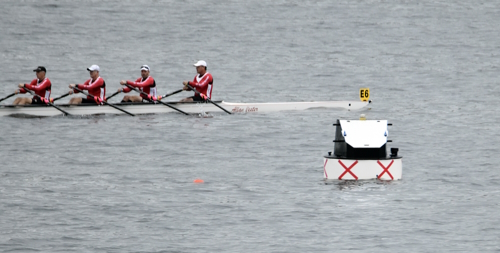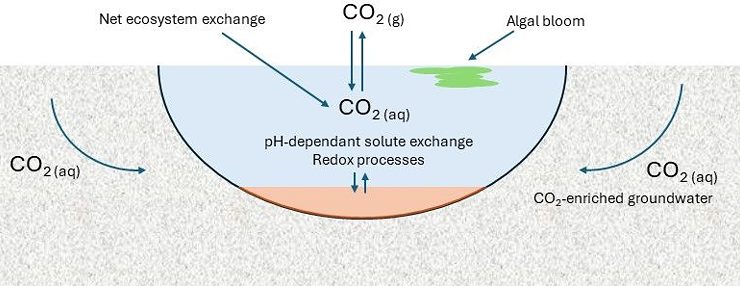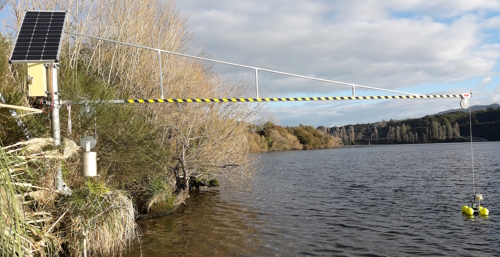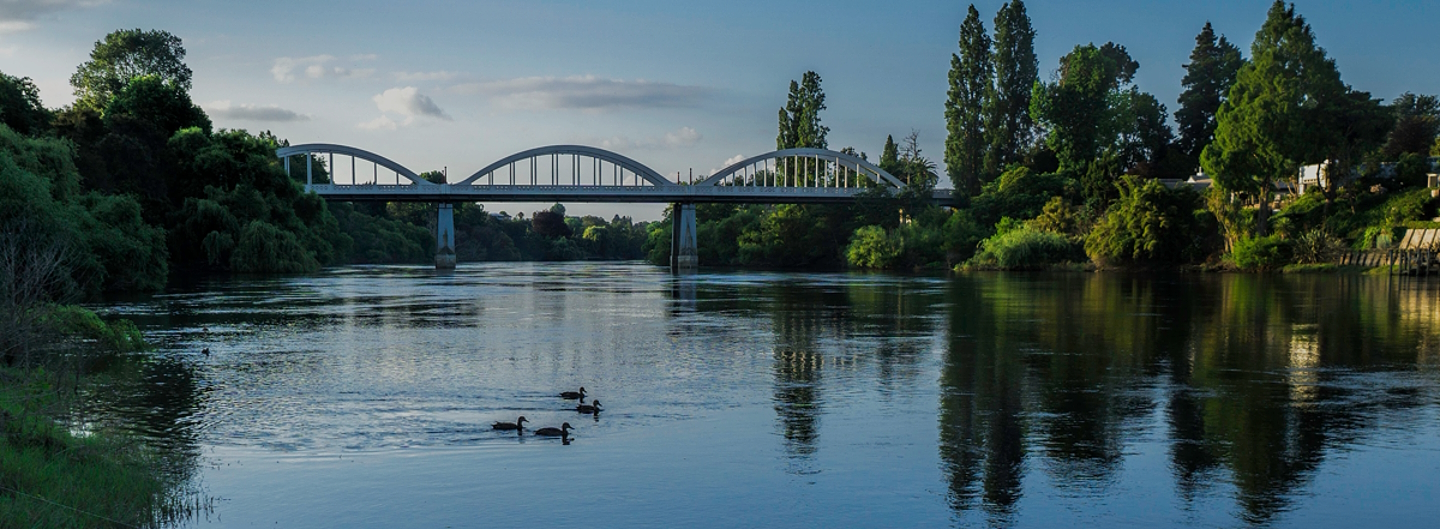In broad strokes

Rowers on Lake Karapiro pass the ECP profiler buoy which autonomously measures water quality throughout the water column (Photo: Shane Iremonger)
Gases in air and water continuously exchange. Amongst these, oxygen (O2) and carbon dioxide (CO2) are central to both water health and chemistry.
Linked by ecosystem metabolism, our analysis of Waikato River monitoring data shows that the concentration of these gases has steadily changed in the Waikato River over the last three decades. In broad strokes, we suggest these shifts tell the story of nutrient-driven productivity increases, higher heterotrophy (i.e. decay of algal biomass), and a rising atmospheric CO2 background (see diagram below).
We hypothesise that the CO2 generated by heterotrophs has caused lower pH values. We propose that rising atmospheric CO2 levels have reinforced these changes, driving an incremental acidification of the Waikato River.
At large, this project is therefore about what that means for freshwater quality over the coming decades.
In essence, this project investigates how pH-dependent processes can feedback on algal growth patterns and the habitability of freshwater for molluscs. And what that means for inter-generational restoration plans for the Waikato River and freshwaters across Aotearoa New Zealand.

An illustration of the interactive effects of ecosystem productivity and CO2 exchange.
Installation of monitoring infrastructure

Monitoring sonde in the Waikato River provides continuous measurements of dissolved O2, CO2 and various indicators of water quality and ecosystem health.
The first months of our programme have laid the groundwork for what’s to come. Most tangibly, this has seen the commissioning and build-out of our Waikato River monitoring infrastructure. This has been no mean feat due to the multitude of challenges arising from Lake Karapiro being one of the busiest hydro lakes in the country.
The infrastructure is being delivered in partnership with Mercury Energy NZ and Hamilton City Council, which are providing access to two of our monitoring sites. This work has benefited from the assistance of Rowing New Zealand and NIWA, whom we gratefully acknowledge.
PhD and MSc opportunities
As we gear up for continuous monitoring of water chemistry and algal growth over the next several years, we look forward to welcoming several PhD and MSc researchers into our team via our university partners.
We are currently recruiting for three PhD and two MSc projects within ECP. Please share these opportunities with any interested parties.
Algal ecology
Dr Chris Cornwall, Victoria University of Wellington, is offering a PhD using the latest tools in eco-physiology and molecular biology to understand the impacts of rising CO2 levels on algal communities. Go to find a PhD for more information.
Hydrodynamics, gas exchange and numerical modelling

The first PhD will focus on constraining the effects of turbulence and CO2 exchange on water chemistry, using a combination of field measurements, data analysis, and numerical modelling to parameterise in-river turbulence and air-water fluxes.
The second PhD will develop 3D dynamic lake ecosystem models to investigate the effect of atmospheric CO2 increase on plant growth and biogeochemical cycles in lake ecosystems. You can find details on both these PhDs on the university’s Environmental Research Institute opportunities page.
In all of these PhDs you’ll be collaborating with world-leading scientists from Lincoln Agritech and international universities and research organisations.


